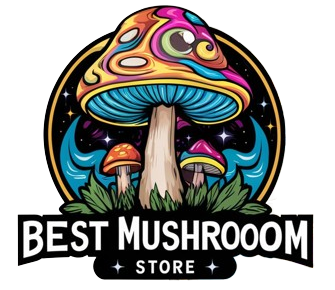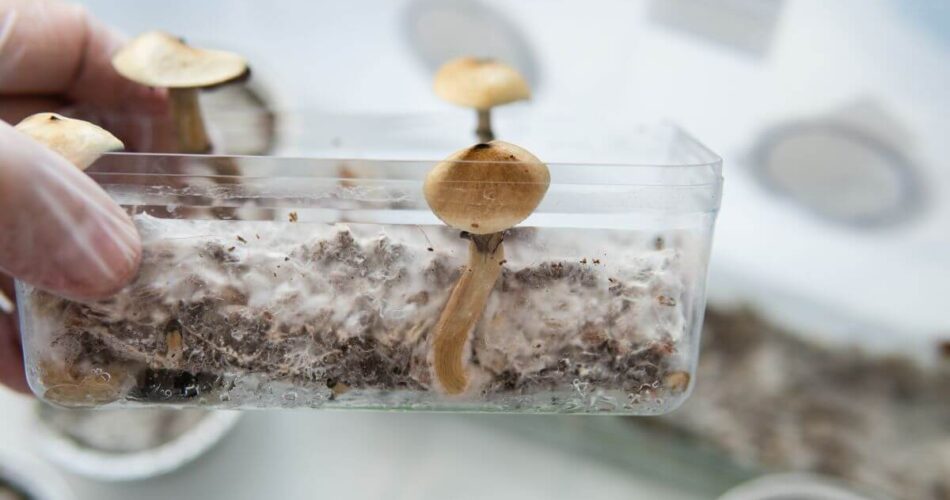Psilocybe stuntzii is a type of psilocybin mushroom that can be found throughout the world. These mushrooms have psychoactive properties and are known to cause hallucinations. Read on if you are interested in the fungi world!
If you are thinking about picking any mushrooms, it is important to know how to identify them properly so that you can avoid any potential dangers. In this post, we will discuss the identifying features of Psilocybe stuntzii.
Psilocybe Stuntzii – History, Other Names
This mushroom was named in honor of Dr. Daniel Stuntz, a renowned mycologist from the University of Washington. It was described by famous mycologists G. Guzmán and J. Ott. The other names of this mushroom include Stuntz’s Blue Legs, Stuntzie’s Blue-Foot, and the Blue-Foot.
Psilocybe stuntzii has a long history of use by Native Americans in the Pacific Northwest region of the United States. These tribes would use the mushroom in religious ceremonies and for healing purposes.
Psilocybe Stuntzii – Habitat and Distribution
Psilocybe stuntzii is found in the Pacific Northwest of North America, especially in the Seattle area. It grows on wood chips and decaying conifer logs, especially Douglas fir.
P. stuntzii has also been found on lawns composed of Douglas fir bark mulch. The mushroom is sometimes called “blue-ringers” or “blue-bellies” because of the bluing that often occurs on the lower stem. It is a popular species among mushroom hunters in the Pacific Northwest because it is relatively common and easy to identify. This shroom fruits from late spring to early autumn.
How to Identify this Mushroom, Morphology
Psilocybe stuntzii is a small to medium-sized fungus with a conical to convex cap that is 2-8 cm in diameter. The cap is yellowish to reddish brown in color and has a smooth, dry surface. The gills are adnate to slightly decurrent, and are pale brown to dark brown in color. The spore print is brown.
The stipe is 4-10 cm long and 0.4-1.2 cm in diameter. It is equal in width throughout its length or slightly tapering towards the base, and is pale brown to dark brown in coloration. The flesh of P. stuntzii is white to pale brown in color. Its name Blue Ringers comes from the fact that the annulus (ring) on the stipe is often bluish in color, although this is not always the case.
Blue Ringer – Psilocybin Content, Potency
This mushroom contains the psychoactive compounds psilocybin and psilocin. When consumed, these main active compounds can produce hallucinations and other altered states of consciousness. For this reason, Psilocybe stuntzii is considered a psychedelic shroom. Consuming it can be a risky activity, as the effects of the psilocybin-containing mushroom are not always predictable. There is also a potential for negative side effects, such as anxiety and paranoia. Therefore, it is important to exercise caution if you choose to consume this shroom.
Psilocybe stuntzii is one of the most potent psychedelic mushrooms, containing up to 2% psilocybin and 0.4% psilocin. When dried, the percentage of psilocybin decreases while the percentage of psilocin increases. P. stuntzii can be consumed fresh or dry. The effects of the shroom vary depending on the dose and method of consumption. When consumed fresh, the effects of the mushroom are typically milder. When consumed dry, the effects can be more intense.
Similar Species
Psilocybe stuntzii is similar to a Galerina marginata – a highly toxic mushroom that can cause hepatic necrosis, gastrointestinal hemorrhage, and death. However, P. stuntzii can be distinguished from G. marginata by its smaller size (minimum cap width of 1.5 cm vs. 2-3 cm in G. marginata), more brownish coloration, and lack of ring on the stipe.
It can be also confused with Psilocybe cyanescens and Psilocybe cubensis – another potent magic mushrooms – which can be distinguished by its larger size, darker coloration, and more wavy cap margins.
Similar Posts:
- Psilocybe Allenii Mushroom – Spore Print, Habitat, Identification
- Psilocybe Baeocystis – Unusual Psilocybin Species. Identification, Potency & Characteristics
- Psilocybe Strictipes: Find Out More About the Hallucinogenic Mushroom Species
- Types of Magic Mushrooms – Psychedelic Effects, Potency, Psilocybin Content, Characteristics, and More
- Psilocybe Galindoi: A Species of Psilocybin Mushrooms
- Psilocybe Caerulescens – Everything You Want to Know About This Magic Mushroom
- Psilocybe Subcaerulipes: A Japanese Mushroom That Contains Psilocybin. History & Morphology of the Species




